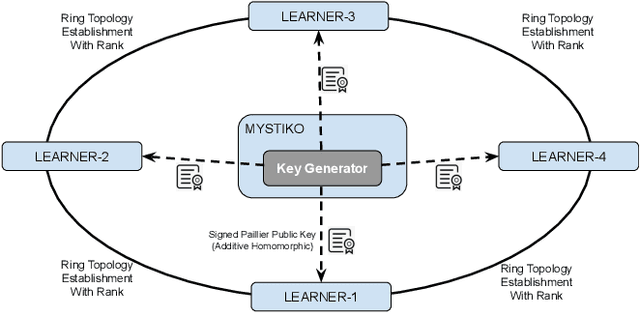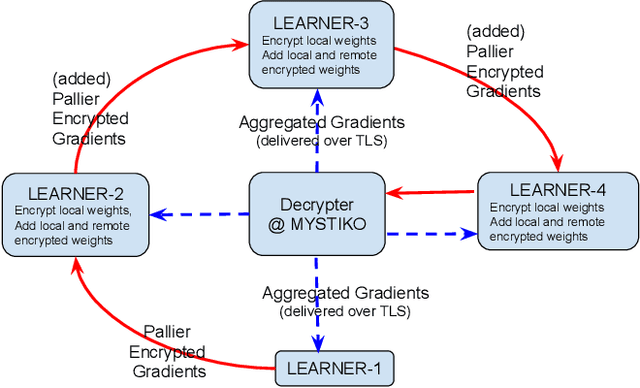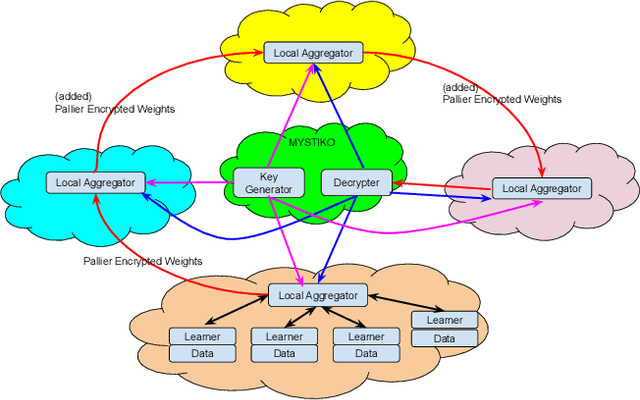Colin Sutcher-Shepard
MYSTIKO : : Cloud-Mediated, Private, Federated Gradient Descent
Dec 01, 2020



Abstract:Federated learning enables multiple, distributed participants (potentially on different clouds) to collaborate and train machine/deep learning models by sharing parameters/gradients. However, sharing gradients, instead of centralizing data, may not be as private as one would expect. Reverse engineering attacks on plaintext gradients have been demonstrated to be practically feasible. Existing solutions for differentially private federated learning, while promising, lead to less accurate models and require nontrivial hyperparameter tuning. In this paper, we examine the use of additive homomorphic encryption (specifically the Paillier cipher) to design secure federated gradient descent techniques that (i) do not require addition of statistical noise or hyperparameter tuning, (ii) does not alter the final accuracy or utility of the final model, (iii) ensure that the plaintext model parameters/gradients of a participant are never revealed to any other participant or third party coordinator involved in the federated learning job, (iv) minimize the trust placed in any third party coordinator and (v) are efficient, with minimal overhead, and cost effective.
 Add to Chrome
Add to Chrome Add to Firefox
Add to Firefox Add to Edge
Add to Edge